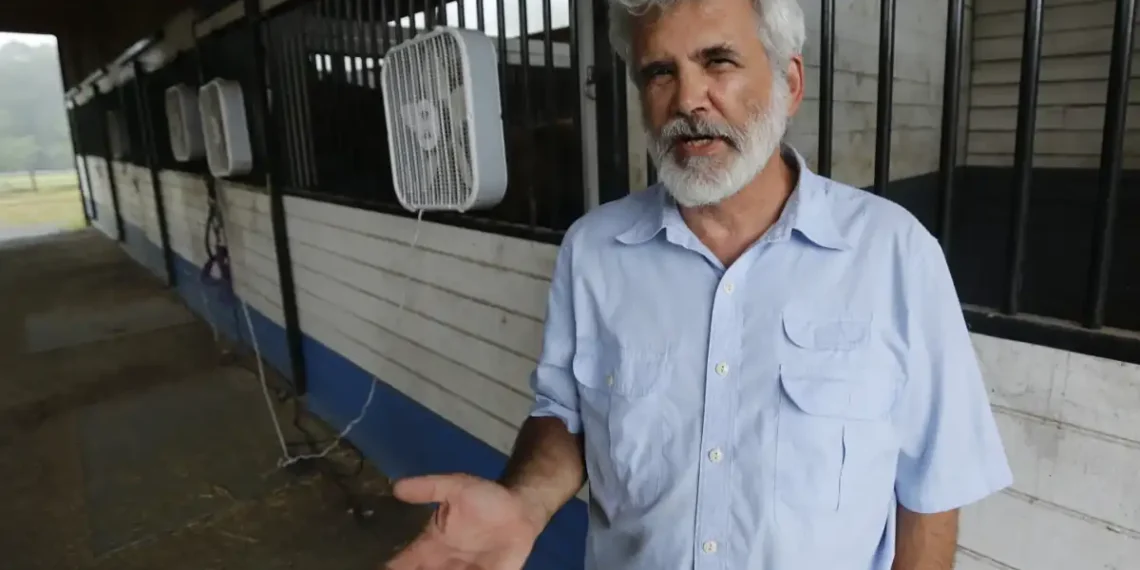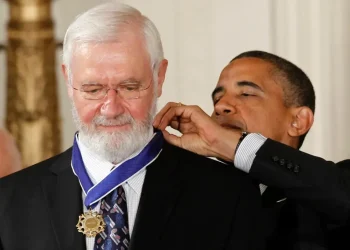Kennedy Reshapes CDC Vaccine Panel with Critics of Mainstream Science, Prompting Alarm Among Experts
In a sweeping shake-up of federal health policy, U.S. Health Secretary Robert F. Kennedy Jr. has disbanded the CDC’s long-standing vaccine advisory committee and installed a new, smaller panel featuring several prominent vaccine skeptics. The dramatic move has sparked widespread concern among public health experts, who warn it could politicize immunization guidance and further erode public trust in vaccines.
The announcement, made Wednesday on social media, follows Kennedy’s abrupt dismissal of all 17 members of the Advisory Committee on Immunization Practices (ACIP) earlier this week. In their place, he named eight new advisers — a number of whom have promoted views widely criticized as fringe or misinformed, especially during the COVID-19 pandemic.
Who’s In and Why It Matters
Among Kennedy’s new appointees is Dr. Robert Malone, a self-described mRNA technology pioneer who became a conservative media figure after questioning the safety and efficacy of COVID-19 vaccines. He has falsely claimed that the vaccines cause “vaccine-acquired immunodeficiency syndrome” and suggested mass hypnosis led millions to get vaccinated — positions widely debunked by experts.
Also joining is Dr. Martin Kulldorff, an epidemiologist known for co-authoring the controversial Great Barrington Declaration. That document opposed pandemic lockdowns and advocated for “focused protection,” drawing sharp criticism from mainstream scientists who viewed it as a high-risk strategy that would have cost countless lives.
Another controversial figure is Vicky Pebsworth, a regional director of the National Association of Catholic Nurses, who has ties to the National Vaccine Information Center — a group known for spreading vaccine misinformation. Her appointment has drawn particular ire from public health researchers.
“Pebsworth’s presence on this panel is incredibly problematic,” said Abram Wagner, a University of Michigan public health expert. “This is someone associated with an organization that routinely promotes discredited claims.”
What Is ACIP and Why It’s Crucial
The Advisory Committee on Immunization Practices was established in 1964 to provide independent, evidence-based recommendations to the CDC director on how vaccines should be used. While the FDA approves vaccines as safe and effective, ACIP decides who should get them and when — shaping U.S. vaccination schedules for children and adults alike.
ACIP recommendations have long guided medical practice, insurance coverage, and public health campaigns. Members typically serve staggered four-year terms and are selected for their scientific expertise in fields such as virology, epidemiology, pediatrics, and public health.
Kennedy, however, has criticized the committee as too closely aligned with pharmaceutical companies and has questioned its independence. He has pledged to appoint what he calls “credible scientists” free from industry influence, though many of his appointees lack deep experience in vaccine development or public health policy.
The New Lineup
In addition to Malone, Kulldorff, and Pebsworth, Kennedy’s other picks include:
- Dr. Cody Meissner, a respected pediatric infectious disease expert with prior ACIP and FDA advisory experience — widely viewed as the most credentialed member of the new group.
- Dr. James Hibbeln, a former NIH neuroscientist who studies nutrition’s effect on brain development.
- Retsef Levi, an MIT operations management professor who called for an end to COVID-19 vaccination efforts in a viral 2023 video.
- Dr. James Pagano, an emergency physician in Los Angeles.
- Dr. Michael Ross, a Virginia-based OB-GYN and private equity investor with prior CDC advisory experience on women’s health issues.
A Tipping Point for U.S. Vaccine Policy?
The upheaval has rattled public health institutions and reignited fears that Kennedy — once a leading figure in the anti-vaccine movement — is steering U.S. health policy toward ideological rather than scientific grounds.
During his Senate confirmation earlier this year, Kennedy promised not to alter the existing childhood vaccine schedule. But in recent weeks, he has overridden key ACIP recommendations, including guidance on COVID-19 shots for pregnant women and children and approval of a new combination meningococcal vaccine.
“The previous ACIP was filled with experts who dedicated their careers to vaccine science,” said Jason Schwartz, a health policy professor at Yale. “Replacing them with individuals known for promoting vaccine misinformation threatens the foundation of evidence-based public health.”
What Happens Next
The new panel’s first scheduled meeting is later this month, though its agenda has yet to be released. Federal documents suggest upcoming votes on seasonal vaccines for flu, RSV, COVID-19, HPV, and meningococcal disease.
It remains unclear whether Kennedy intends to expand the panel beyond the current eight members, well short of the typical 15 voting experts.
Meanwhile, the stakes could not be higher: the ACIP’s guidance influences school vaccination requirements, Medicare and Medicaid coverage, and the broader national strategy for preventing infectious disease outbreaks.
As Kennedy’s tenure continues to provoke controversy, the reshaping of the CDC’s top vaccine advisory body may be remembered as a pivotal moment in the battle over science, politics, and public health in America.
This article was rewritten by JournosNews.com based on verified reporting from trusted sources. The content has been independently reviewed, fact-checked, and edited for accuracy, neutrality, tone, and global readability in accordance with Google News and AdSense standards.
All opinions, quotes, or statements from contributors, experts, or sourced organizations do not necessarily reflect the views of JournosNews.com. JournosNews.com maintains full editorial independence from any external funders, sponsors, or organizations.
Stay informed with JournosNews.com — your trusted source for verified global reporting and in-depth analysis. Follow us on Google News, BlueSky, and X for real-time updates.













